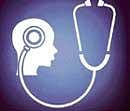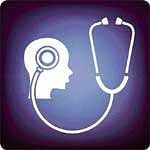

What is dementia? Dementia is essentially a degenerative condition, which usually develops in the older age group. It is a multi-dimensional disorder, which affects almost all faculties, such as memory, orientation, emotion, behaviour, previously-acquired skills, personality, independence, and perhaps most importantly, dignity.
How common is it?
It has been estimated that there are about 30 million people with dementia in the world. This number is predicted to reach 100 million by 2050. In India, there are four million people with dementia and this number may reach about 15 million by 2050. A rough estimate of the situation in India shows that one in 37 people above the age of 60 have dementia.
What are the types of dementia?
Alzheimer’s disease is, by far, the most common form, wherein all the changes mentioned above occur subtly, over a long period of time. Second is vascular dementia, which occurs due to blood vessel changes, affecting the blood flow to the brain. There are other treatable causes of dementia, such as hypothyroidism, certain vitamin deficiencies, and initial stages of alcoholic dementia. Other types include Lewy body dementia, Huntingdon’s disease, Creutzfeldt-Jakob disease, and AIDS-dementia complex.
What are the risk factors?
Dementia usually sets in after 60 years of age. So ageing is a risk factor for this condition, but that does not necessarily mean that all of us will develop dementia eventually.
Risk factors, for the sake of convenience, could be divided as non- modifiable and modifiable. Risk factors for the former category include age, family history, certain genetic and chromosomal associations, and brain trauma. The latter category includes cardiovascular diseases, stroke, diabetes, smoking, alcohol consumption, obesity, dietary habits, and lack of exercise.
What is the treatment?
As of now, there is no treatment that can effectively cure a person with dementia. Care of people with dementia requires a multi-disciplinary approach, involving teams such as psychiatrists, neurologists, physicians, occupational therapists, physiotherapists, speech and language therapists and psychologists.
If you are caring for a person with dementia, ensure that proper care is initiated as early as possible. Apart from certain anti-dementia medication, which are known to reduce the progress of the disease, psycho-social assessments and interventions involving the above teams are a vital part of the management of dementia.
Safety at home is another issue as these individuals are prone to falls, misusing electrical equipments and wandering out into the community on their own. This can turn out to be a huge stress for the caregiver, but often an under-looked aspect of dementia and needs to be addressed appropriately.
Can I do anything to avoid getting it?
If you have a family history of dementia or the extremely rare genetic risk factors, then the chances of developing dementia are considerably enhanced.
However, if you are able to control the modifiable risk factors mentioned above, it would go a long way in preventing the onset of dementia. Therefore, the simplest way, perhaps, is to lead a healthy lifestyle with a balanced diet and regular exercise. Maintain an ideal weight figure and make sure your blood pressure, sugar and cholesterol are under control.
Develop an active, exploratory lifestyle and try to reduce stress, anxiety, and depression. Stimulating experiences, such as learning a new language or a musical instrument, developing a new hobby, yoga, travelling or socialising are also helpful. Keep your brain active by solving puzzles and crosswords, or by simply memorising your shopping list or adding up your everyday expenses. All these little factors help by developing new brain tracts, which in turn reduce the damage that might occur in later life.
How can I get help?
The Department of Psychiatry in Bangalore Baptist Hospital is open to patients with dementia and their caregivers. The department will be observing World Alzheimer’s Day and National Dementia Awareness Week 2011 by conducting a free Dementia Screening Camp on September 20, 2011. Individuals above 60 years of age may attend the camp. Call (080) 22024700-349, to register.